Whether you’re managing bug reports, customer feedback, or internal roadmaps, the right tool will help you categorize, prioritize, and resolve issues quickly while keeping stakeholders informed.
In a healthy development workflow, all bugs should be logged and prioritized. When your project is small, you might get away with doing that in a simple spreadsheet. But as soon as things become more complex, the limits of such an approach will begin to show very quickly.
When that happens, it’s time for a dedicated issue tracking software solution.
What is issue tracking software?
Issue tracking software (also referred to as an issue tracking system (ITS) or simply issue tracker) is a tool used to document, prioritize, and resolve issues reported by customers or employees.
Such tools usually allow you to add an entry for each issue, assign it to a team member, monitor their progress, and notify the stakeholders once it’s resolved. Most importantly, issue tracking software helps you manage all issues in one place, without letting anything slip through the cracks.
1. Trackeach
Trackeach is a Trac Cloud Service Provider. We have also enhanced and extended Trac. Track, manage and update everything out of the box at one single place.
Trac was first released in 2006. Not much younger than JIRA, Trac is an open source project management and an issue tracking system that has been adopted by a number of organizations, including WordPress, OpenStreetMap, and Django. It uses a minimalistic approach to web-based software project management and has an integrated wiki and convenient reporting facilities.
Issues in Trac are referred to as “tickets,” and Trac’s ticket management system can be adopted for defect management as well. The online collaborative track platform to bring teams together, anytime, anywhere!
2. Zoho BugTracker
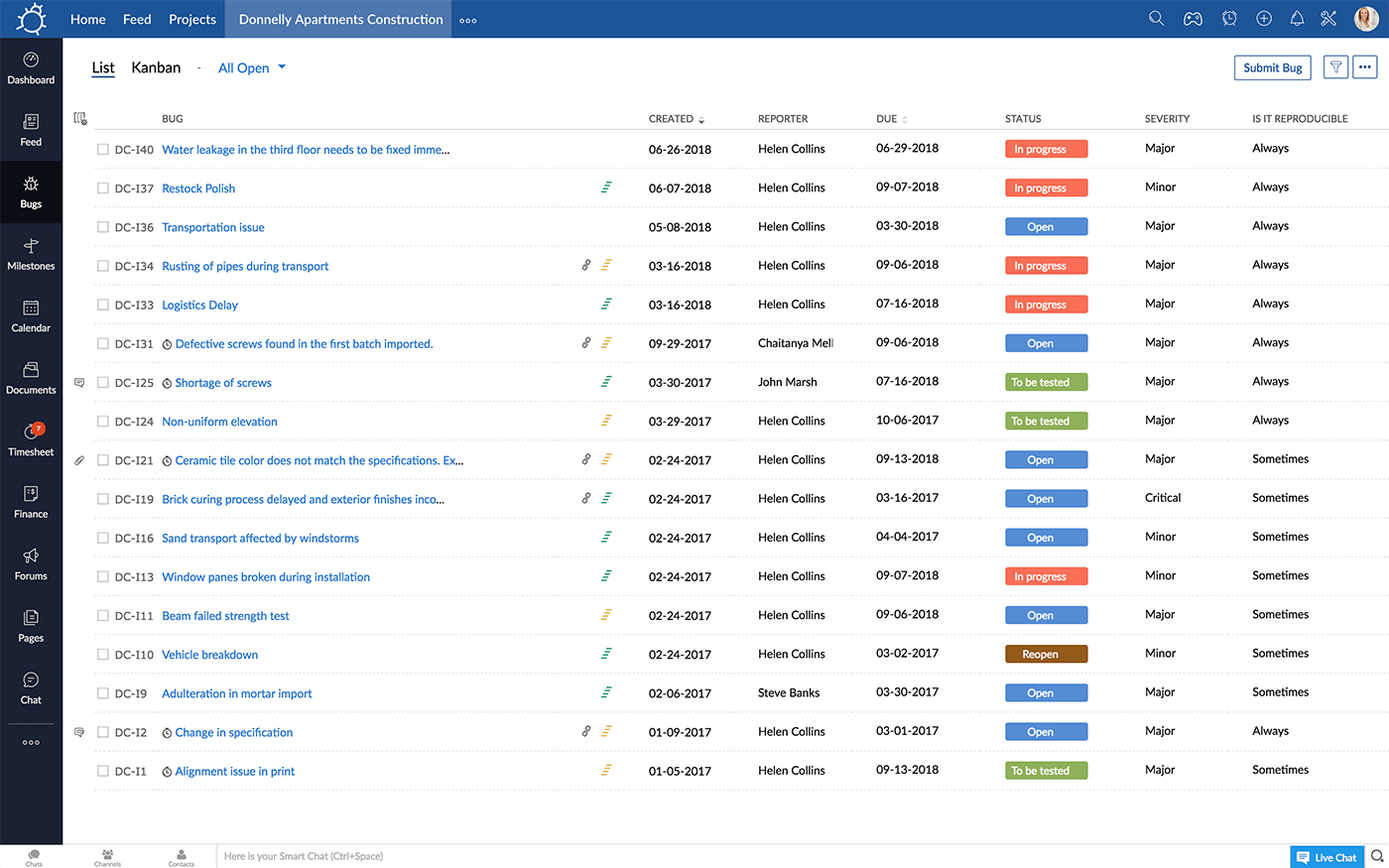
Zoho BugTracker is a very simple yet powerful issue tracking tool. It’s not as feature-packed as Jira but it makes up for it with a more intuitive and user-friendly interface.
BugTracker’s core strength lies in its seamless integration with other products in the Zoho suite, such as Zoho Desk. Support teams can easily submit customer tickets using BugTracker and then track their status and collaborate with engineers from within Zoho Desk. In turn, engineers can have a complete view of customer conversations related to a particular issue.
3. Redmine
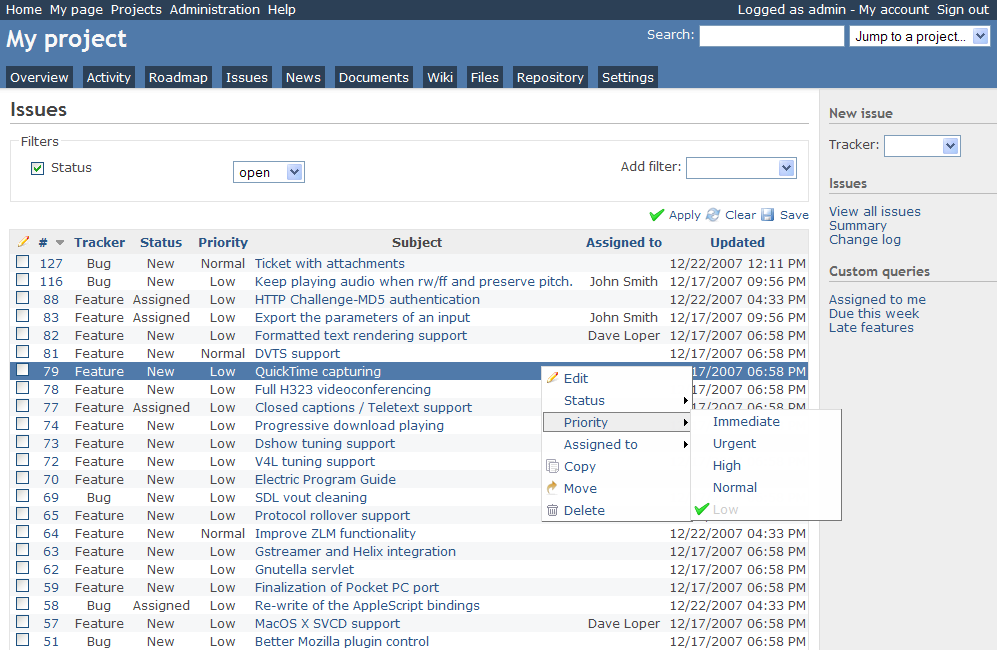
Redmine is a free and open-source issue tracking software. Its interface may feel a bit archaic and less intuitive compared to some of its proprietary alternatives, but it has all the functionality a team might need to manage projects and track issues. It’s modular, extendable, and versatile, with a wide variety of plugins and themes to choose from.
Note that the installation process of Redmine can be a challenge for novices. If you are looking for something more polished and user-friendly, you may also want to consider Easy Redmine. It works as a plugin for Redmine and offers a complete upgrade and redesign of most of its features. It’s only available as a paid solution, but you may find that it’s worth the investment.
4. Bugzilla
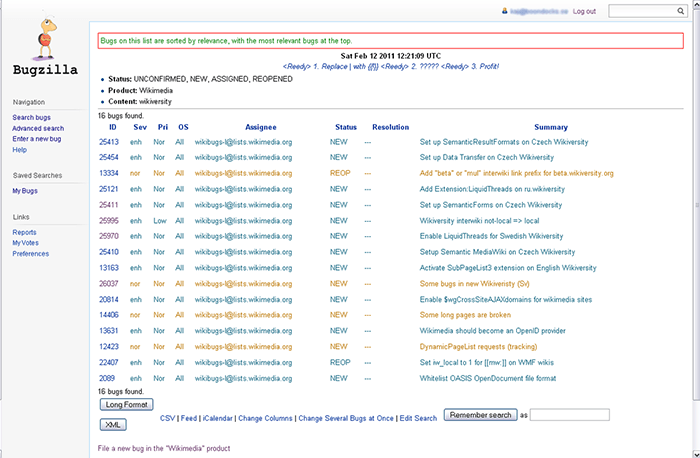
Like Redmine, Bugzilla is a free and open-source bug tracker. It’s somewhat simpler and easier to use than Redmine, but is no less powerful and flexible. Notable features of Bugzilla include automated email status updates, time tracking for issue resolution, duplicate bug detection, and more.
Remember that since Bugzilla is an open-source solution, you will bear all the responsibility for installing and maintaining it without direct support from the Bugzilla team.
5. nTask
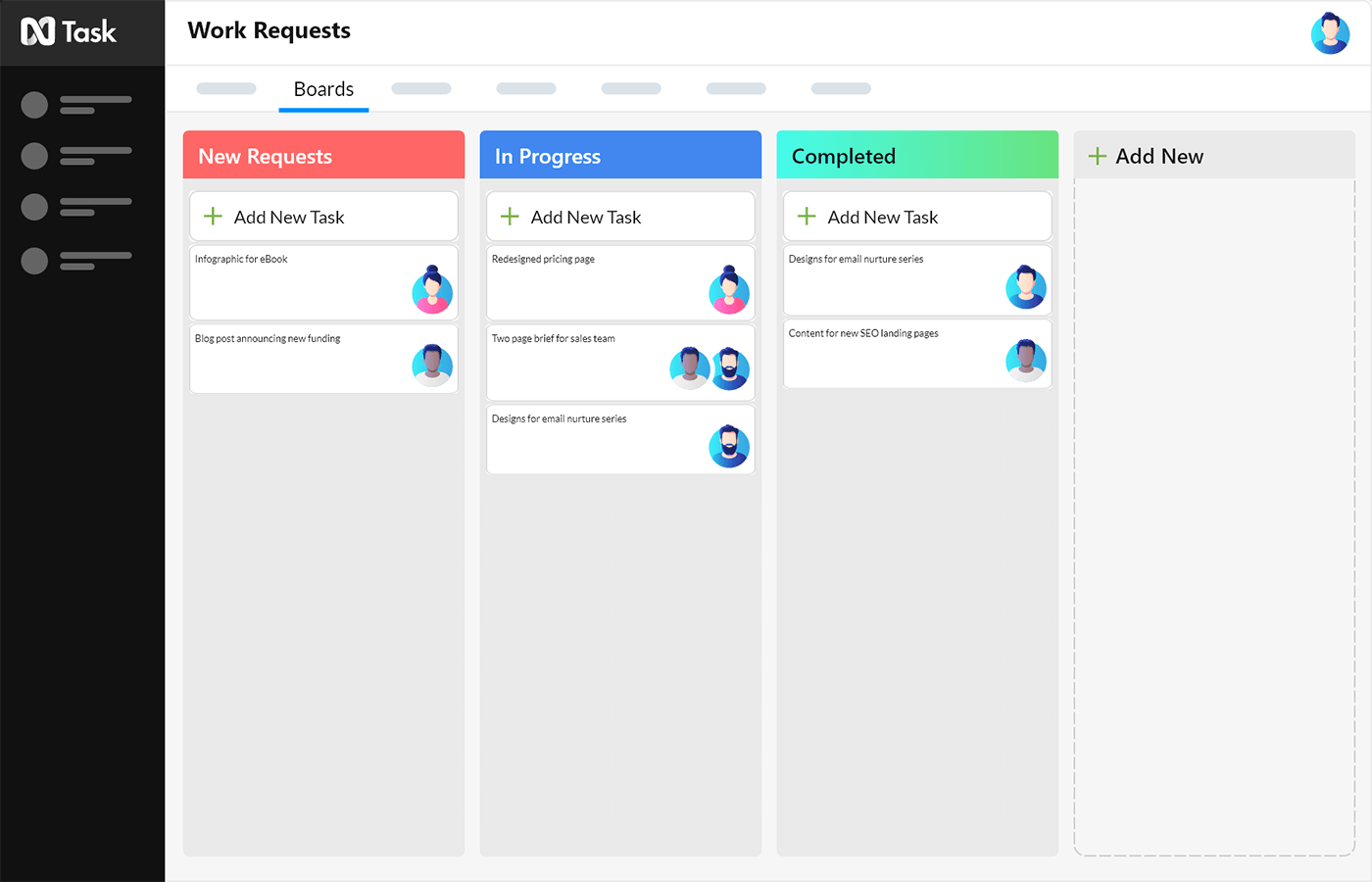
nTask is a comprehensive issue tracking software that supports organizations of all sizes in effectively tracking, managing and resolving issues.
The robust feature set of nTask includes task boards, Kanban boards, timesheets, and reports, providing centralized access to all aspects of the issue management process. Its advanced version control system enables organizations to keep track of changes made to issues, ensuring accountability and accuracy.
6. GitHub Issues
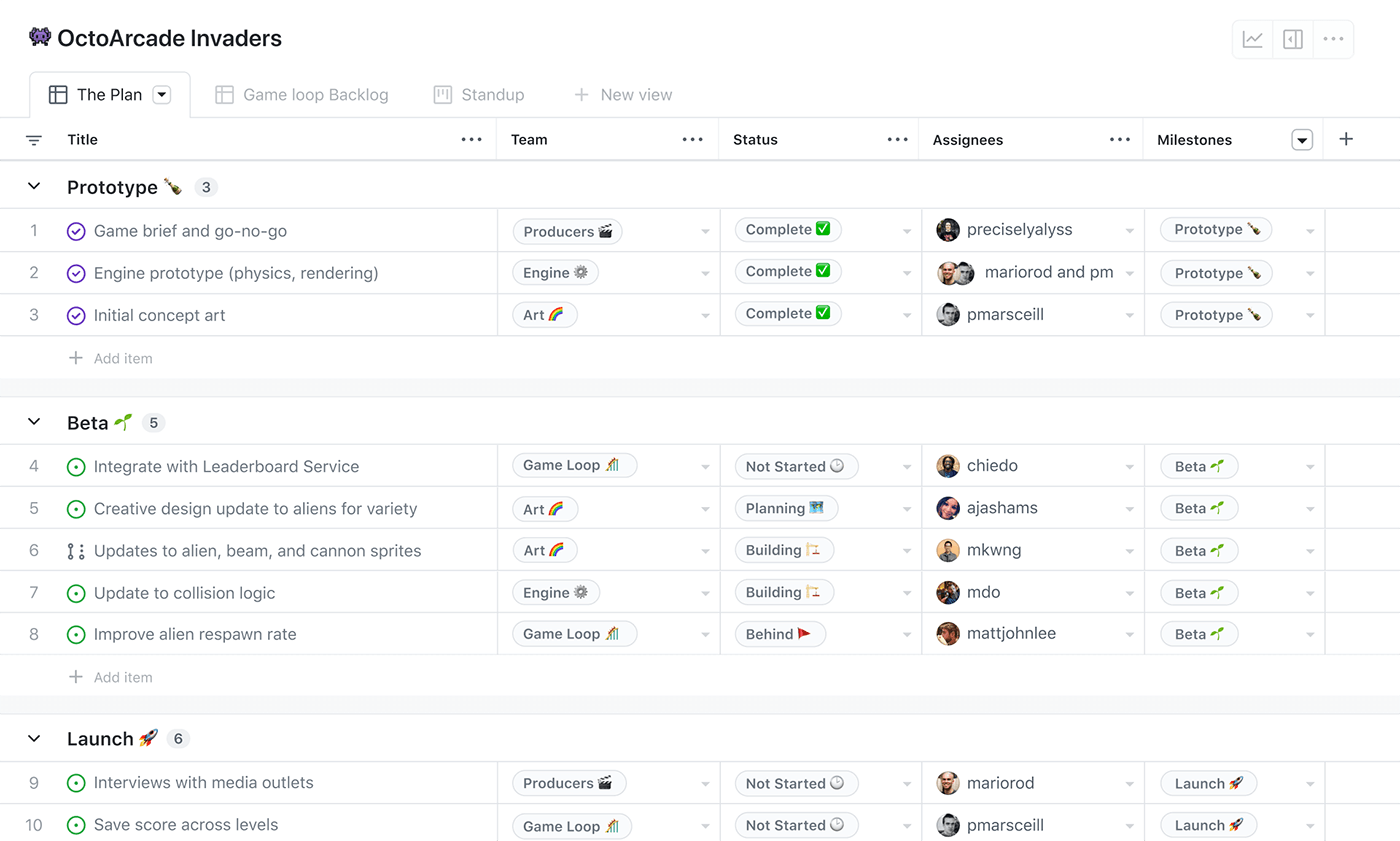
GitHub Issues is a popular issue tracking system that is built into the GitHub code repository platform. It is used by many software development teams to track and resolve issues or defects in software code.
One of the main benefits of GitHub Issues is that it is tightly integrated with the rest of the GitHub platform, which makes it easy for teams to track issues within the context of their codebase. GitHub offers a range of features for issue tracking, including the ability to break down issues into actionable tasks, create boards and tables, collaborate using Markdown, and more. It also allows teams to customize the issue tracker to meet their specific needs, including the ability to add custom fields and workflows.
Overall, GitHub Issues is a powerful issue tracking system that is well-suited for software development teams. It is particularly useful for teams that are already using the GitHub platform for version control and code collaboration. However, the learning curve for GitHub may be steep for some users due to the large number of features it offers.
7. GitLab
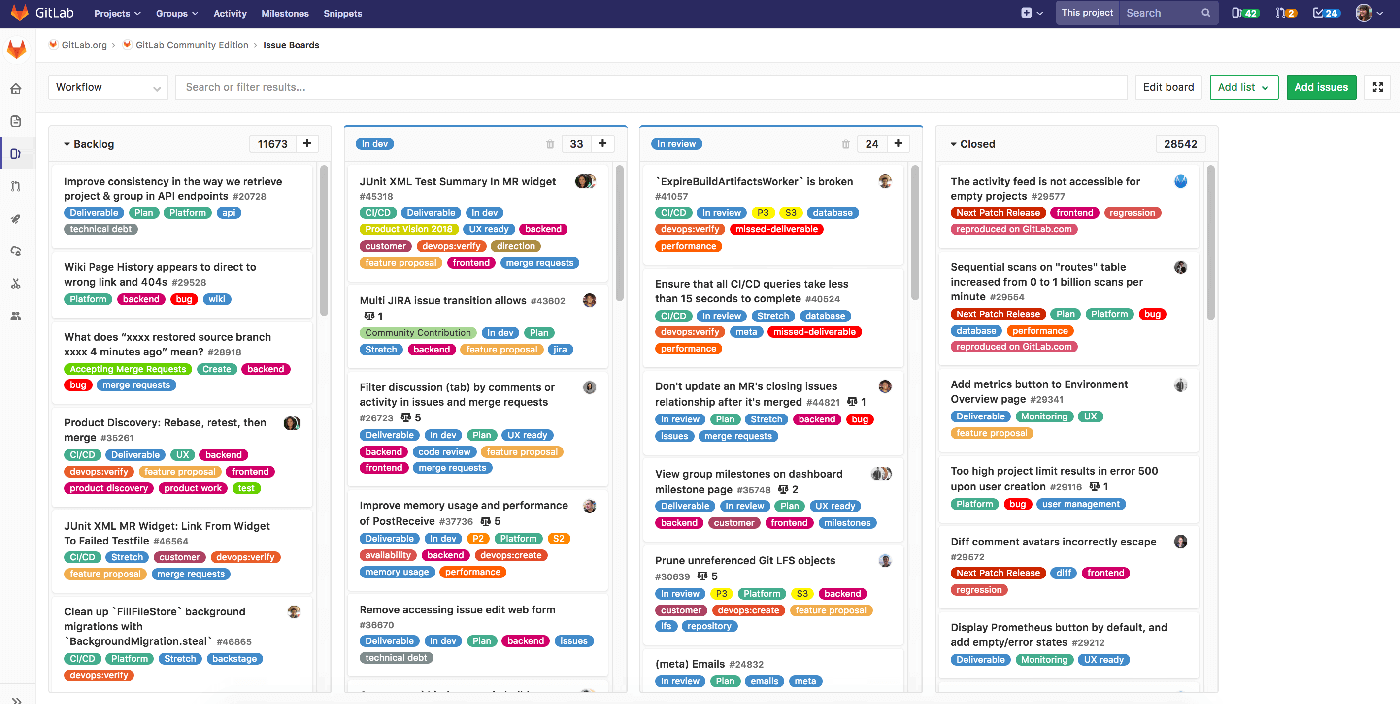
GitLab is a versatile web-based Git repository manager that provides a wide range of DevOps services and tools for managing the software development lifecycle, including source code management (SCM), continuous integration, and more. It is designed to help teams collaborate on code development and deployment. GitLab also offers an issue tracker which is a popular choice among developers.
Since GitLab is a single application that includes a variety of tools, its issue tracker is tightly integrated with the rest of the platform. This makes it easy to track issues and work on code within the same environment, without having to switch between different tools.
GitLab’s issue tracker is highly customizable, with a number of options for configuring issue types, workflows, and more. You can also use custom fields to add additional information to issues, and create custom issue boards to track progress and prioritize work.
8. Taiga
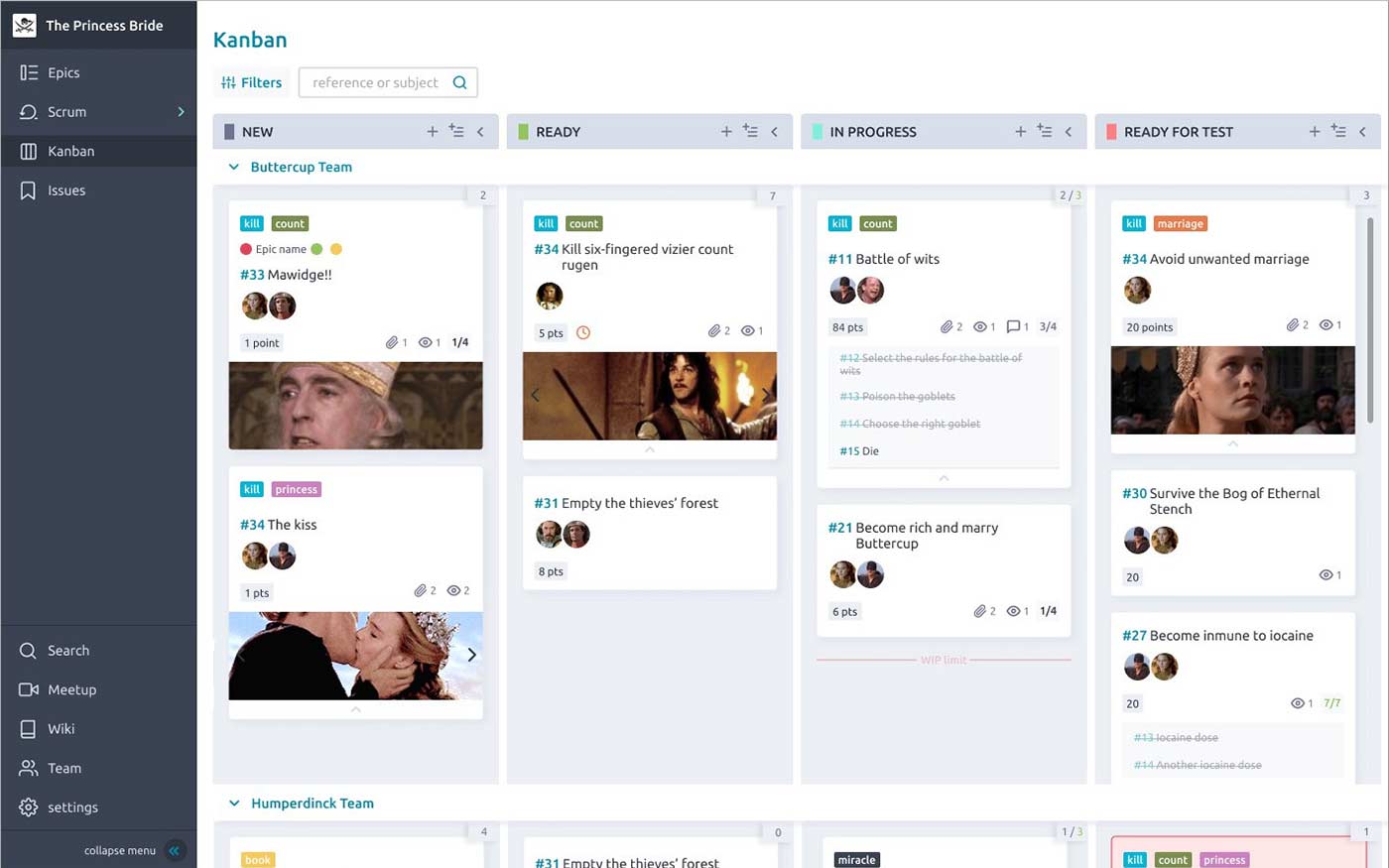
Taiga is an open-source issue tracking system and project management tool designed to help teams track and resolve issues that arise during the development process. One of the key features of Taiga is its support for Agile project management methodologies, such as Scrum and Kanban. This allows you to customize your workflow and prioritize issues based on their importance and your team’s capacity. You can also use Taiga to create and manage user stories, epics, and other Agile-specific elements.
In addition to its core issue tracking capabilities, Taiga also includes a range of tools to help teams collaborate and communicate effectively. This includes the ability to assign issues and tasks to team members, leave comments on tasks, and track the progress of work in real-time. Taiga also integrates with a variety of tools and services, such as GitHub, GitLab, and Slack, which makes it easy to share information and collaborate with your team.
9. YouTrack
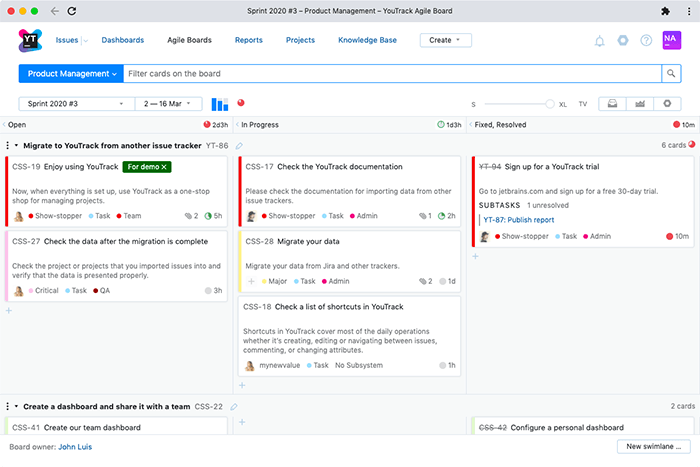
YouTrack is a browser-based issue tracking system and project management tool developed by JetBrains. It stands out from the competition thanks to how customizable it is. You can configure fully personalized panels and dashboards, displaying all the most relevant issues at a glance.
The interface of YouTrack may feel a little cluttered and overwhelming to new users, but that’s the price one must pay for such a feature-rich, flexible tool.
10. Jira
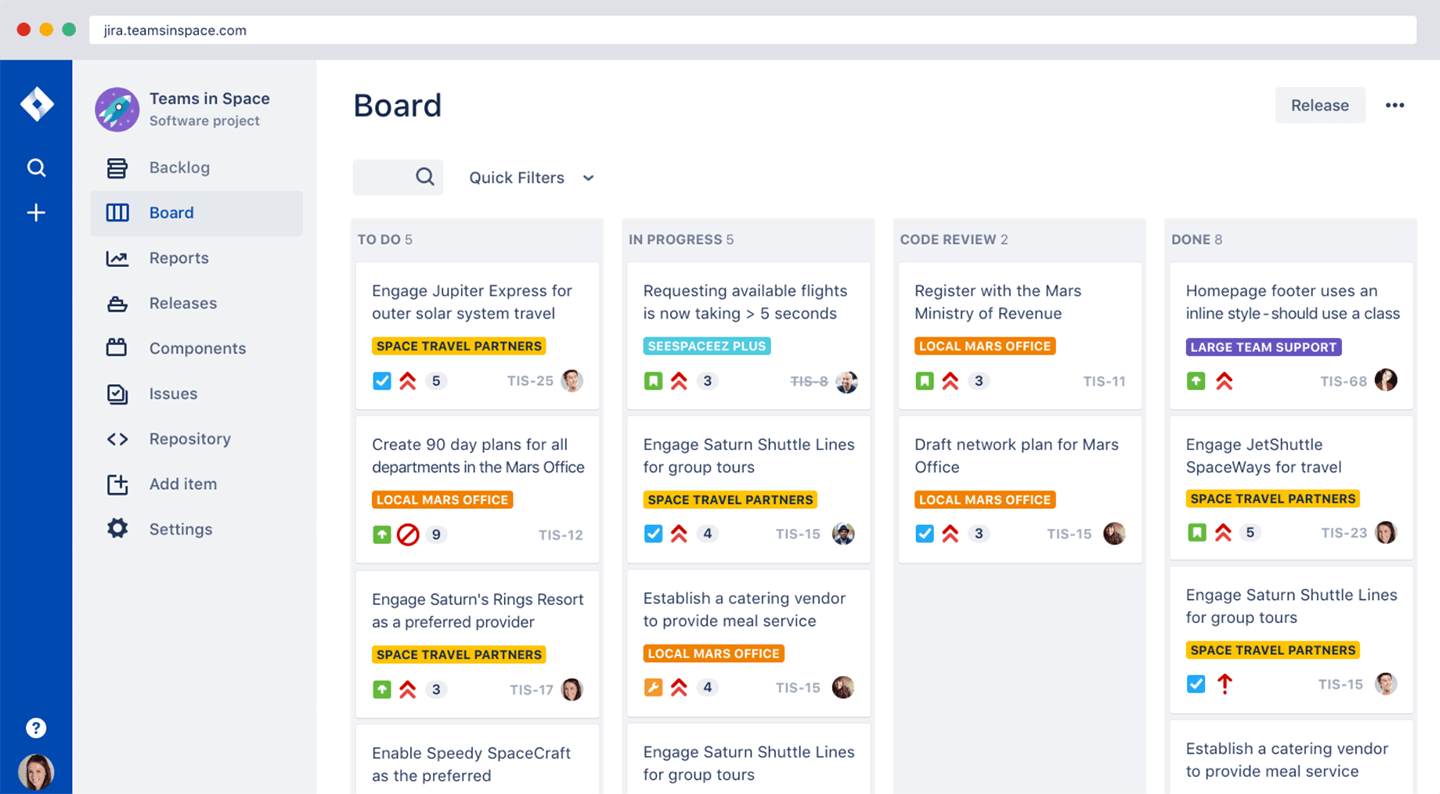
Jira is one of the most mature issue tracking tools out there, with over 75,000 customers around the globe. It’s packed with a variety of specialized features, including burndown charts, workload management, timelines, and more.
Jira is entirely customizable, allowing you to configure the tool in a way that fits your team’s unique workflow. It also offers integrations with many popular help desk tools, such as Intercom, allowing you to link customer conversations to Jira issues and keep them in sync.
Note that all that extensive functionality comes with a learning curve, but with a bit of training it’s not that hard to get up and running.
Looking for more tools similar to Jira? Check out this list of Jira alternatives.
Benefits of using an issue tracker
Adopting an issue tracking tool and integrating it into your team’s workflow will take time, so is it worth it?
Whether you’re part of a software development team, an IT department, or a customer service team, understanding the usefulness of issue tracking can help you make the most of these powerful tools. Let’s go over some of the key benefits of having an issue tracker as a part of your toolset.
Improved visibility
Issue tracking software provides a central place where teams can see all of the outstanding issues that need to be resolved, as well as the progress that has been made on each issue. This can help teams to prioritize their work and ensure that important issues are not overlooked.
Enhanced collaboration
Issue trackers provide a platform for team members to collaborate and communicate with each other as they work to resolve issues. This can help to improve the efficiency of the resolution process and reduce the risk of miscommunication.
Better organization
Issue and bug tracking tools help teams to organize and manage their work, allowing them to categorize and prioritize issues based on factors such as their impact on the business or the urgency of their resolution.
Increased accountability
Issue trackers allow teams to assign issues to specific team members and track the progress that has been made on each issue. This can help to increase accountability and ensure that issues are being addressed in a timely manner.
Easier tracking and reporting
An issue tracking system provides a record of all issues that have been reported and resolved, making it easier to track the progress of the team and to generate reports on the status of outstanding issues.
Improved customer satisfaction
By providing a way to track and resolve customer issues in a timely and organized manner, issue tracking tools can help to improve customer satisfaction and strengthen relationships with clients.
